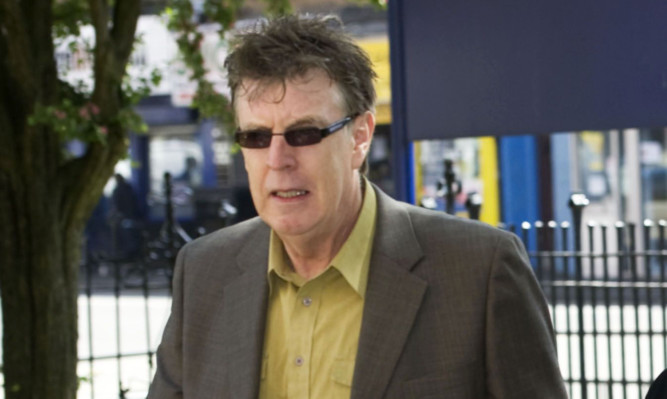
Scotland’s leading anti-corruption campaigner has revealed a major new European initiative aimed at combating the scourge of match-fixing.
Tony Higgins has been at the forefront of the fight against gambling in the game for a number of years. And as Rangers’ links with Malaysian money men continue to be the subject of scrutiny, he has warned that the desperate state of football in that Asian country is precisely what the authorities are battling to avoid.
“Malaysia is the example I always use about what when talking about the danger this poses to our sport,” said Higgins, Vice-President of FIFPro, the world footballers’ association.
“Fifteen years ago, football was really thriving in Malaysia. Now the gates are only a tenth, and sometimes even a twentieth of what they were back then. And that is entirely down to the fact their fans do not believe in the integrity of the scores.
“They don’t think the games are clean, so they won’t go and watch them.”
Higgins had a decent playing career himself, principally with Hibs and Partick Thistle in the 1970s and 1980s.
Match-fixing had reared its head in the game long before that. But Tony is only too well aware of the dangers match-fixing poses.
In June a nine-country pilot project, chaired by Higgins and aimed at developing local solutions to combat the international criminal gangs, came to an end.
It was so successful, the organisers are now going back to the European Commission, who funded it, with a proposal for a new 20-country, two-and-a-half-year initiative.
“The reason for this is the sheer weight of interest we have encountered in the 18 months we were working on it,” said Higgins. “They were saying to us: ‘Listen, we have our own problems and we want to set up our own task forces to tackle them’.
“It is fascinating. I think we all know that international criminal gangs have no borders. But what has become very clear is that they are so skilled at adapting to local conditions.
“In Western Europe, for example, gambling is a big factor. There have been cases where players, who have run up big debts through betting, have been targeted with offers to clear the money owed in exchange for favours.
“In the East, meanwhile, it might be non-payment of wages. There is plenty of evidence that in these situations, disenchanted footballers are much more susceptible to inducements.”
Scotland has been largely free of the problem so far. That’s due, at least in part, to the proactive stance adopted by the police in partnership with the footballing authorities.
However, the admission this month by the English Football Association, that they have a ‘watch list’ of players ‘of interest’ currently operating in the English game, was an alarming reminder how close it is to our door.
“There is no room for complacency,” insisted Higgins. “Match-fixing has surfaced in all sorts of places that people would not have imagined possible.
“Lower league games in Finland, Norway, Australia, Hungary, Africa you name it. There is a level of football in a number of countries that has been bedevilled by the issue of match-fixing.
“The main focus of what we are trying to achieve is to make sure players, referees, club officials and everybody in the game really are aware of the potential threat. We go round all the clubs to hammer home the message that players have always got to be careful of whom they befriend.
“It can start off with the gift of a bottle of champagne, the loan of a car or a flat. But then it becomes requests for information then maybe a demand for a booking or a corner. And once they have hooked you in, they never let you go.”
The fight goes on.

Enjoy the convenience of having The Sunday Post delivered as a digital ePaper straight to your smartphone, tablet or computer.
Subscribe for only £5.49 a month and enjoy all the benefits of the printed paper as a digital replica.
Subscribe